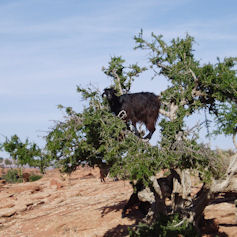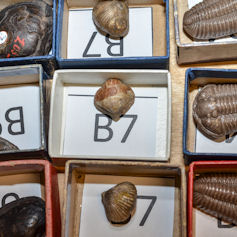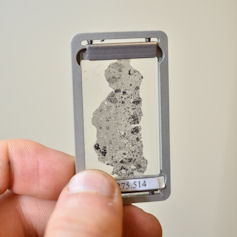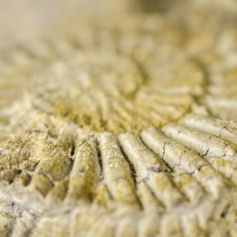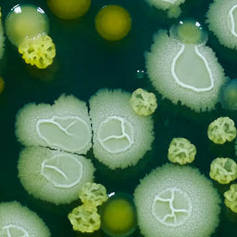
Life on Earth
Our work involves studying the origins and evolution of life on Earth and its interactions in modern ecosystems.
Our facilities
We use the latest interdisciplinary techniques to conduct our research, from genome sequencing in the lab to using mass spectrometry facilities in the field.
The Earth is unique among known planets in being home to life. Organisms first appeared on Earth nearly four billion years ago and have been responsible for shaping the development of the planet ever since, including changing the composition of the atmosphere and driving the formation of different types of rock. Work in the school spans from ancient life preserved in the fossil record to the examining of modern-day organisms and the ecosystems in which they live.
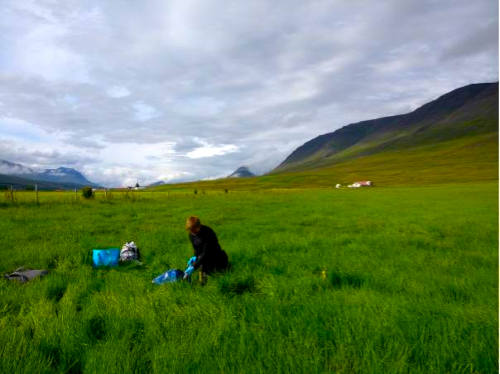
We study organisms ranging from the smallest microorganisms to the largest plants and animals, examining in particular how these organisms evolved and how they survive and interact with each other and with their environment. We work at scales ranging from molecules to the planet.
Research into life on earth includes activities of the Williamson Research Laboratories, Microbial Evolution Research Manchester and the Interdisciplinary Centre for Ancient Life.
Research highlights
Predicting Climate Impacts on Soil Microbes
The majority of life on earth is microbes. How do they respond to the extreme events that climate change is making ever more frequent? The answer impacts everything from crop production to global carbon cycling. We worked with a big network of collaborators from across Europe to collect grassland soils and subject them to extreme events in a Manchester laboratory – heat, freeze, drought and flood. The bad news was that the microbial communities in these soils were very different from one another, meaning that there wasn’t much in common in how they responded to the extreme events. Despite this we were able to pick out the small consistent changes. And even better, we were able to use what we knew about the environments the soils came from to predict how much their microbial communities were going to be affected by an extreme event. For example, soils from environments acclimatised to drought are particularly badly affected by flood and vice versa.
How big rats invaded North America
Rats are found in human settlements across the globe. Scientists from the Department of Earth and Environmental Sciences and a global team of colleagues have been investigating how they colonized America. Black and brown rats were introduced into the USA separately; using chemical analyses of their bones and the proteins these contain, this team has shown they have been competing for longer than we had thought.
Areas of expertise
Major topics on which our research focuses include:
-
Conservation biology
Our researchers use ecology and evolutionary biology techniques to monitor the responses of terrestrial and aquatic communities to a range of challenges including habitat loss, disease outbreaks and invasive competition. Our work also informs wildlife management and conservation strategies and assists in the enforcement of prohibitions on the trade in endangered species.
-
Evolutionary mechanisms and dynamics
Evolution has shaped life as we know it. Our research uses theoretical, computational and experimental approaches to understand and predict the structure and behaviour of biological systems and their evolution as environments change, organisms mutate and natural and sexual selection occurs.
Read more
-
Geomicrobiology
Geomicrobiology lies at the interface of geology and biology. Our research combines the techniques of microbiology and molecular biology with physical, chemical and modelling approaches. By doing so, this work highlights the role that microorganisms play or have played in key geological processes.
-
The history of life on Earth
Palaeontological and archaeological remains are essential for understanding how organisms, including humans, evolve and respond to long-term environmental change. We employ morphological, chemical and biomolecular tools to study past patterns of palaeobiodiversity, evolutionary innovations, and the earliest genetic modifications of plants at the transition to farming.
Read more
-
Plants, soils and ecosystems
Plants and the complex biological communities that inhabit soils interact with each other and respond to environmental changes. Researchers on plants, soils and ecosystems study these interactions and their consequences in natural and managed ecosystems, as well as how plants and algae respond to environmental stresses.
Find out more
-
Microbial ecology
Microbes are everywhere and how they interact and evolve impacts global nutrient cycles, bioremediation and human health, for example in the antimicrobial resistance crisis. We study microbes and microbial communities experimentally in both field and laboratory conditions. Much of this research is cross-disciplinary, enabling us to address diverse fundamental and applied environmental challenges.

